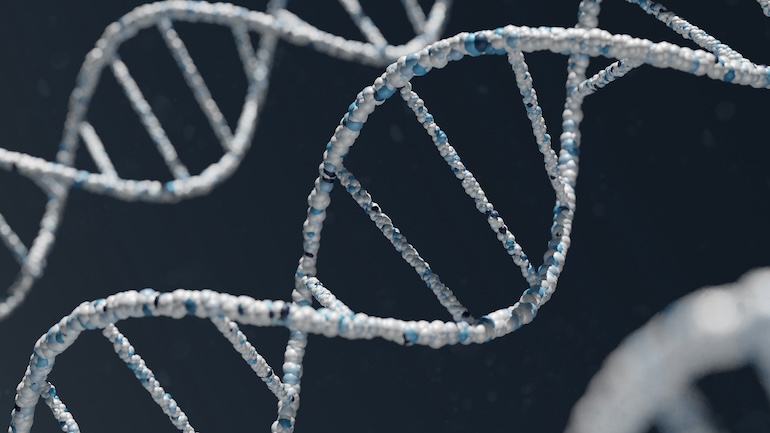
Atlas Data Storage, having been spun off from parent company Twist Bioscience, is a pioneering startup focused on creating enterprise data storage applications based the unique properties of synthetic DNA.
The concept of creating storage capacity using synthesized strands of DNA is both otherworldly and something of a practical necessity. Research firm Gartner forecasts that by 2030, enterprise storage capacity will face a shortage equal to nearly two-thirds of demand—and that’s even counting consumer storage. Soon there won’t be enough flash drives, magnetic tape and hard disk drives to archive the ever-growing mountain of data.
DNA data storage promises to alleviate this problem by encoding and decoding data to synthetic DNA, which offers very high storage density in a very small space. While there are various ways to encode data into DNA, many of them require the digits of data to be converted into a nucleotide—a core element of DNA—using a lookup reference table. Among the advantages of DNA storage are unlimited low cost copies, scalability and the ability to store data for exceptionally long periods, potentially a thousand years.
However, this nascent technology has not yet attained commercial viability because read and write speeds have been slow and the costs have been high.
Twist Bioscience, the former parent company of Atlas Data Storage, developed advanced DNA storage technology by creating a silicon-based semiconductor fabrication system that enables ultra-fast data transfer. This proprietary system miniaturizes the chemistry at the core of the DNA synthesis process.
Atlas Data Storage, since its spin-off from Twist, now holds the license for this technology. Atlas describes it as “massively parallel chemistry performed on a chip.”
Although Twist and Atlas are now separate companies, they have a partnership agreement that creates a revenue share for Twist based on any sales of Atlas’s future products. Atlas’s product efforts will be well funded: The new firm has landed $155 million seed financing from a group of investors that includes ARCH Venture Partners, Deerfield Management, Bezos Expeditions, Tao Capital Partners, RSquared VC, Earth Foundry and In-Q-Tel.
The startup also benefits from a formidable management team. The CEO is Varun Mehta, who previously founded storage outfit Nimble Storage, acquired by Hewlett Packard in 2017. The CTO is Bill Banyai, whose background includes developing DNA technology at both Twist Bioscience and Complete Genomics. George Kadifa, the executive chairman, held management positions at Oracle, IBM and venture firm Silver Lake.
Atlas’s goal as it enters the market is to target large enterprise customers like hyperscalers and government agencies. They hope that their products will “meet the data storage demands of the AI era with low cost, ultra-high density, secure, scalable storage,” which suggest the company’s tech advances have lowered the costs of this emerging DNA technology.
The company touts its design as allowing greener data centers with “permanent storage,” lower power requirements and less carbon impact than traditional storage. They claim it will not require ongoing migration or rewriting to new storage media—again, a clear nod to DNA’s long storage capacities.
“The opportunity to create an entirely new storage medium does not arise often,” said Varun Mehta. “At Atlas Data Storage, we are pioneering the use of DNA for high-capacity storage. DNA enables highly scalable, ultra-dense, secure, permanent data storage, and the potential to reshape storage is tremendous.”
Atlas faces some challenges as it enters the market. First, large enterprise buyers are notoriously resistant to cutting edge technologies. The path of least resistance for this affluent market sector is to simply purchase more and larger flash drives. Additionally, there are companies already competing in the DNA-based storage market, including Catalog Technology in the U.S. and Biomemory in France.

